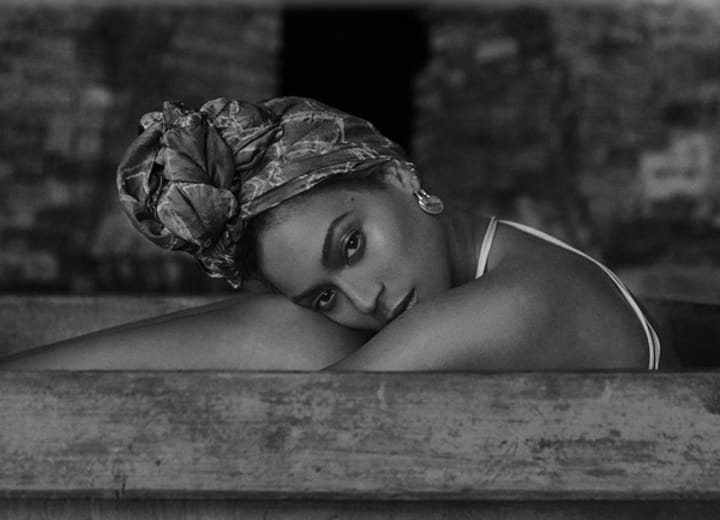Against All Odds
How Black Women Singers Have Fared in the Fight Against Racial Prejudice

Black History Month is here again, and it opens many conversations on just how America has fared in stamping out racism from its society. A year ago today, Ahmaud Aubrey, while jogging through Brunswick, Ga.-area neighborhood, was chased and gunned down by a white man named Travis
Black History Month is here again, and it opens many conversations on just how America has fared in stamping out racism from its society. A year ago today, Ahmaud Aubrey, while jogging through Brunswick, Ga.-area neighborhood, was chased and gunned down by a white man named Travis McMichael. Three months later, the killing of George Floyd by a white officer gave impetus to the fight against racial prejudice. Many influential celebrities and American singers lend their voices and popularity to the struggle for racial equity. This is no different to what famous recording artists did during the 1950s. I have always been inspired by black women artists who used their influence and finances to champion the plight of black people. These brave artists risked their lives and careers to fight at a time when it was unpopular to do so.
For years, Black women artists have utilized their fame, influence, and perceived power in speaking out against racial prejudice and inequity. Hazel Scott, Lena Horne, Nina Simone, Miriam Makeba, and Beyonce may belong to different generations and their style of music may differ. However, one thing unites all five – they have used their platform and music to try to raise awareness of systemic racism. Activism is no small endeavor, and it comes at a price. What price these singers have had to pay to achieve the goal they’ve set for themselves? How far have we come? What are the gains achieved?
Hazel Scott

Born in Trinidad in 1920, Hazel Scott began playing the piano at the age of 3. Ms. Scott climbed onto the piano and played a song her grandmother used to sing to her. Her mother began to train her. When she was four years old, she, her mother, and grandmother migrated to the United States.
She achieved many firsts within the course of her career in the 1940s and 1950s. At 8 years old, she became the youngest student accepted at the prestigious Juilliard. During her teen years, she performed in her mother’s band. The crown loved her. She was the darling of the New York jazz scene and was known for improvising many classic works by Bach and Mozart with jazz. She once called it the Hazel Scott Sound- also known as “jazzying up the classics.” At 19, Billie Holiday gave Ms. Scott her big break. When Ms. Holiday was headlining at Cafe Society, one of the first integrated nightclubs in America. Ms. Scott’s big break came when Ms. Holiday had to cut her engagement short. Ms. Holiday convinced the owner to allow Ms. Scott to take her place.
Ms. Scott was one of the first performers who refused to play at venues that racially segregated their audience. During her interview with Time Magazine, Ms. Scott said she was astonished and livid that someone would come to hear her play, and yet refuse to sit beside someone of her color. Her musical career was intertwined with activism, and both can hardly be separated. After building a largely successful career in music, she made her debut in Hollywood.
While there, she had written in her contract that she would not play any of the subservient roles or degrading roles reserved for Black women. She demanded to be cast as one role- herself. Hollywood could only say yes. Towards the end of the 1950s, Ms. Scott was one of the highest-paid Black American entertainers in the country earning $75,000 a year (equivalent to $1 million a year at the time).
She fought aggressively against racism, stereotypes, and paid the price for her activism when the industry blacklisted her. While on set in the production of the 1943 movie, The Heat’s On, Ms. Scott noticed dirty aprons being handed to Black actresses. She demanded that the scene shows actresses wear clean clothes as they see their men go off to war. The director refused. She angrily left the set and would not return until the costumes were changed. The costumes were changed to attractive floral dresses. Her actions cost the studio a significant amount in revenue. Hazel was blacklisted and she returned to New York. In 1950, she became the first black American to host her own network TV show.
Ms. Scott was soon blacklisted as one of the entertainers suspected of having ties with the communist USSR during the Cold War era. She defended herself from these accusations. Her talk show was canceled as a result and concert bookings became almost non-existent. Her marriage to Adam Clayton Powell – a Baptist minister and politician also collapsed, leading to her having a nervous breakdown.
She moved to Paris where she continued to lead protests against racial injustice. However, by 1967, she moved back to the US and became a leading figure in the Civil Rights Movement.
Lena Horne

Born in 1917, Lena Horne was a legendary singer and actor who fought against racial prejudice in the entertainment industry throughout the course of her career. She first came into the limelight aged 16 and became the very first Black American entertainer to sign a long-term contract with a major Hollywood studio. She was part of a few films but was never cast in a lead role due to the endemic racism prevalent in Hollywood at that time.
Ms. Horne was called upon to entertain the troops at Fort Reilly, Kansas during World War II. Soon after, she filed a petition with the National Association for the Advancement of Colored People (NAACP) due to the way Black soldiers were treated when they were made to sit behind German POWs. At a point, she was bankrolling her numerous travels to entertain Black Soldiers. MGM Studios soon called off her tours. She filed a number of lawsuits against restaurants and theatres that denied Blacks entrance at their venues.
Just like Hazel Scott, Ms. Horne was among the many entertainers blacklisted during the anti-communist congressional hearings due to her political stance and activism as regards people of color. She was often called upon to perform during civil right rallies.
Ms. Horne also refused to play the roles of maids and other demeaning characters assigned to Black actors. Throughout her early career, she experienced the widespread prejudices suffered by Black Americans at the time.
The high point of her struggle against racism came to the forefront in 1960 when she overheard a drunk White man refer to her in a racial slur at a Beverly Hills restaurant. Lena swooped on him, throwing several objects at him that resulted in a deep cut on the man’s forehead. Her action was carried by leading newspapers in the country, and she won praises from the Black community.
She was part of the civil rights movement, participating in several meetings with prominent activists. Although she suffered many discrimination in the entertainment industry, she was able to crown her career with a Grammy Award, Drama Desk Award, and was a Kennedy Center Honors recipient in 1984.
Nina Simone

Music critics found it hard to restrict Nina Simone to a particular genre. This is because her music transcended genre, with Nina able to incorporate jazz, folk, classical piano, and blues. She recorded tons of jaw-breaking songs during the course of her career.
Born Eunice Kathleen Waymon on February 21, 1933, Ms. Simone started playing the piano at the age of three. She was inspired to take up the stage name Nina Simone in honor of the French actress Simone Signoret. She was a child prodigy influenced by the likes of Bach, Chopin, Beethoven, and Schubert.
Her plans to become the first Black American classical pianist were thwarted when she was denied a scholarship to the Curtis Institute of Music in Philadelphia. Undaunted by this initial setback, she took to performing at nightclubs.
A certain event inspired Ms. Simone to join the fight against racial prejudice. At her first concert where she was billed to perform at the age of 12, her parents were moved to the back of the venue to make way for White people. She subsequently refused to perform until her parents were given the front seat at the theater.
By 1960, she was already a formidable figure in the civil rights movement, creating songs such as Mississippi Goddamn and To Be Young, Gifted and Black. Her song, Mississippi Goddamn was banned from the airwaves due to the striking manner it discussed racism. She also sang Billie Holiday’s Strange Fruit, a song about lynching.
Despite the opposition, messages against racism became the central theme of Ms. Simone’s recordings. She participated in numerous civil rights meetings and protests, including the Selma and Montgomery marches.
Tired of the racism and opposition she faced in America, Ms. Simone emigrated to Liberia in the late 1960s. Her career had dwindled from her directness about matters pertaining to civil rights. During the 70s, she faded from public consciousness and struggled not just financially but also with her mental health. She will eventually settle in France after stints in several other European countries.
However, when Chanel used one of her songs in their perfume commercial in the 1980s, Ms. Simone's career would witness a resurgence. She once again commenced touring and playing at different concerts.
Studies show that Ms. Simone never quite achieved the type of celebrity status expected of someone of her talent. Radio stations refused to play her songs. Venues were hesitant to book her, fearing she just might get on stage and speak frankly about racial injustice and discrimination.
Miriam Makeba

Miriam Makeba was a widely-known South African singer and prominent civil rights activist. During her long career, was a strong voice against the Apartheid regime in South Africa.
Born in a suburb of Johannesburg in 1932, Ms. Makeba’s mother was arrested while Miriam was just eighteen days old for selling home-made beer. Ms. Makeba was forced to spend the first six months of her life in prison with her mother.
Ms. Makeba was a talented vocalist who soon found fame with the release of her song Pata Pata in 1956.
She soon caught the attention of Harry Belafonte due to her involvement in many anti-apartheid demonstrations. He helped her move to the US, where she achieved tremendous success from her tours and recordings.
She testified at the United Nations against apartheid.
The South African government responded by revoking her citizenship and canceled her passport. In 1960, when Ms. Makeba’s mother passed away, she was unable to return home to her mother’s funeral However, many nations were only ever too ready to grant her citizenship. She held about nine passports and was an honorary citizen of more than ten countries.
When Miriam married Stokely Carmichael – a prominent organizer in the civil rights movement in the US in 1968, the American establishment found her move threatening and subsequently canceled her tours and recording contracts.
With Nelson Mandela freed from prison, Miriam returned home after being in exile for over 30 years to helped built post-apartheid South Africa, serving as a Goodwill Ambassador to the UN at some point. She is popularly known as Mama Africa.
Beyonce

Beyonce Knowles Carter whose influence goes beyond just the entertainment industry knows her roots. Using her influence in the media, she continues to lead the cause of the Black community through her music.
The star celebrity has shown support for various social movements, propagating feminism, the right of the LGBTQ+ community, and racial equality, including the Black Lives Matter movement. In the wake of recent police killings of Blacks in the US, Mrs. Carter released bold statements, incorporating her art and activism together.
Her activism has been more closely tied to her art. In 2016, she released Formation, a song about black beauty and being culturally conscious. Her Super Bowl halftime performance that year was seen as one of the highlighting political arts and statements in recent times, seen by millions of people.
Mrs. Carter's actions were not without consequences, as she was widely criticized in the media by right-wingers who accused her of hate speech and racism. Anti-Beyonce protests have also been organized on numerous occasions.
Through her music, she continues to instill a sense of pride and self love in Black and Brown women and girls. Her songs have changed the narrative of beauty once monopolized by European standards. She has created successful albums that draw on a rich cultural Afrocentric tradition.
In the comments under the above video, a commenter, so fetch, writes,
"i am an Indian, and in India if you are a dark skinned women, you are looked down upon and considered ugly. I had always hated my complexion because i was told to by everyone. It was only in the western media that i saw women of my skin color being called beautiful. Watching and listening to dark skinned girls being confident in their brown skin and embracing their melanin has made me love mine too."
While she may not have suffered the same amount of repercussions and backlash that her predecessors from the civil rights era faced when they spoke against racial injustice, it is worthy to note that she has played her part in addressing racial prejudice and police brutality. Mrs. Carter can only thank the brave women before her as she continues to carry the torch using her music as a voice for the voiceless.
The contributions of Black women artists cannot be overstated. Their support for social justice helped embolden a movement, even if it meant risking losing recording contracts, gigs, endorsements, and other financial benefits.
About the Creator
Queenie Reigns
Mom of 1. Retired Homeschooler. Educator. Housekeeper. Head Chef. Dishwasher. Bookkeeper. I have always wanted to write, but my then husband discouraged me. We are no longer together. Just getting back to my passion.






Comments
There are no comments for this story
Be the first to respond and start the conversation.